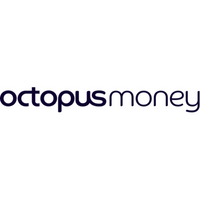Three reasons young employees gain the most from financial coaching

Young employees may be the segment that stand to gain the most from financial coaching. Here’s why.
1. Building financial goals for the first time
Most older employees come to financial coaches with many of their big life goals out of the way – they have a mortgage, they’ve started a family, they’re well on their way to retirement savings. But young employees have a wide, open road in front of them – they need help to define the goals they’re working towards.
Let’s face it, most financial topics are painfully boring. So it’s no surprise that so much financial education fails to engage young people (or any of us, for that matter!). Trained financial coaches take a very different approach. By combining impartial financial guidance with personal coaching around an individual’s values and dreams.
Coaches start by helping individuals define what’s important to them. It’s a lot easier to engage people in money topics when you put finances in the context of one’s personal goals and aspirations for work and life.
Our recent Rethinking Financial Wellbeing survey of FTSE 50 employees, found that people who feel clear about their personal financial goals are 8x more likely to feel very positive about their financial future (than those who aren’t clear).
Coaches also act as a 1-on-1 money resource that most young people have never had. “There’s so much information out there, it’s really easy to get bamboozled. It gives you so much peace of mind to talk things through with someone independent, who can provide clarity of thought,” says Harry, one of our clients.
For example, we’ve recently seen how “get rich quick” investments can target young employees on social media – coaches can provide a more balanced view of the pros and cons of financial decisions.
We often hear from young employees that they’ve never been given space and encouragement to think deeply about what they’re working towards, what’s important to them and why. But when you connect money to your personal values, it’s so much easier to build positive money habits and give greater purpose to your work.
2. Accountability to build positive habits early
Building new habits is hard – especially when you’re entering a new stage of life.
Many young employees are living in a new city for the first time; it may be the first time they’re paying rent; it may be the first time they’ve had a regular salary. Becks, another one of our clients, says: “When I started searching for places to rent in London and I realised just how expensive it was going to be...I needed to get in a new frame of mind.”
A coach can help young employees navigate these changes and help them establish – and stick to – positive money habits.
Let’s take budgeting, a common area of focus for younger employees. One of the biggest challenges is what we call the “leaky bucket” problem. We all know it well: that feeling of our hard-earned money disappearing as we spend on autopilot. ‘Where is all my money going?’
There are lots of great budgeting apps, but a good financial coach creates real accountability and time for reflection that apps struggle to replicate.
For example, our coaches help clients look back on their budget and spending at the end of the month and ask: “Are you happy with where your money went this month?” “What would make you feel happiest next month?” A trained coach helps employees recognise unhelpful patterns and reinforces positive habits, like saving. The best way to stop the “leaky bucket” problem is to be more intentional and more proactive about our spending.
3. Getting a clear view into your future
When we’re young, we feel invincible. So it has always been a challenge to convince young employees to put aside money for an emergency, engage in their pension or opt into the right protection.
But good financial coaches have a powerful tool at their disposal: financial planning technology. With the right tools, coaches can build a personal financial plan, tailored to each individual’s situation, which allows young employees to vividly see the impact of their decisions now, far into the future.
Not only can coaches explain the value of an emergency fund, they can use the personal plan to show how achievable it is to set up and how it will make you more resilient in the future, if say, your energy bills increase.
Coaches also use financial plans to show young employees how small savings or pension contributions can compound over time. Using a plan, you can really see how that little bit of savings will grow over time (and how it will help you meet one of your big future goals, like a house deposit).
Having a financial plan is truly one of the best ways to ensure young employees have the resilience to weather unexpected storms. Our survey found that having a plan has a disproportionately positive impact on lower paid employees (earning under £30,000), who were 6.5x more likely to feel very positive about their financial future.
Good sense for employers
We often tell clients to think of their finances as a structure: the sturdier the foundation, the more secure the structure. With the right guidance, it’s easier for young employees to establish a strong foundation early in their careers.
Building good financial habits early means they’ll be able to make the most out of what they’re earning, see how their work contributes meaningfully to their big life goals and be prepared for any unexpected shocks.
The authors are Shah Abbasi, head of coaching, and Caspian Paget, coach excellence manager both at Octopus MoneyCoach.
This article is provided by Octopus MoneyCoach.
Supplied by REBA Associate Member, Octopus Money
People are your single biggest investment. We’ll help them get the most out of their pay and pension – by connecting the dots between their dreams in life and their reward at work.







